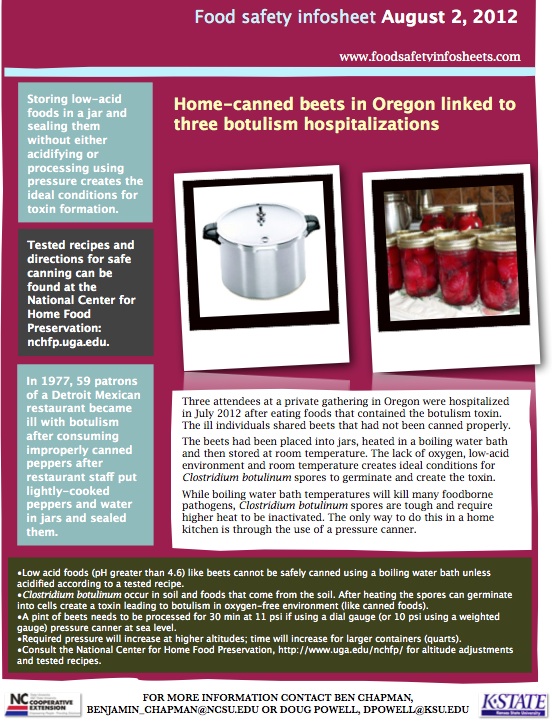Three folks who attended a private bbq in Oregon earlier this month ate some home-canned beets that had not been acidified or processed sufficiently and ended up with botulism. Putting low acid foods in a jar and sealing them without either acidifying (with vinegar/fermentation) or processing using pressure is a bad idea – it creates the ideal enviroment for botulism toxin formation. And botulism is pretty devastating, often resulting in paralysis and a long-term recovery period.
Below is the infosheet and highlights:
– Storing low-acid foods in a jar and sealing them without either acidifying or processing using pressure creates the ideal conditions for toxin formation.
– Tested recipes and directions for safe canning can be found at the National Center for Home Food Preservation:
nchfp.uga.edu.
– In 1977, 59 patrons of a Detroit Mexican restaurant became ill with botulism after consuming improperly canned peppers after restaurant staff put lightly-cooked peppers and water in jars and sealed them.
– Low acid foods (pH greater than 4.6) like beets cannot be safely canned using a boiling water bath unless acidified according to a tested recipe.
Click here to download.
